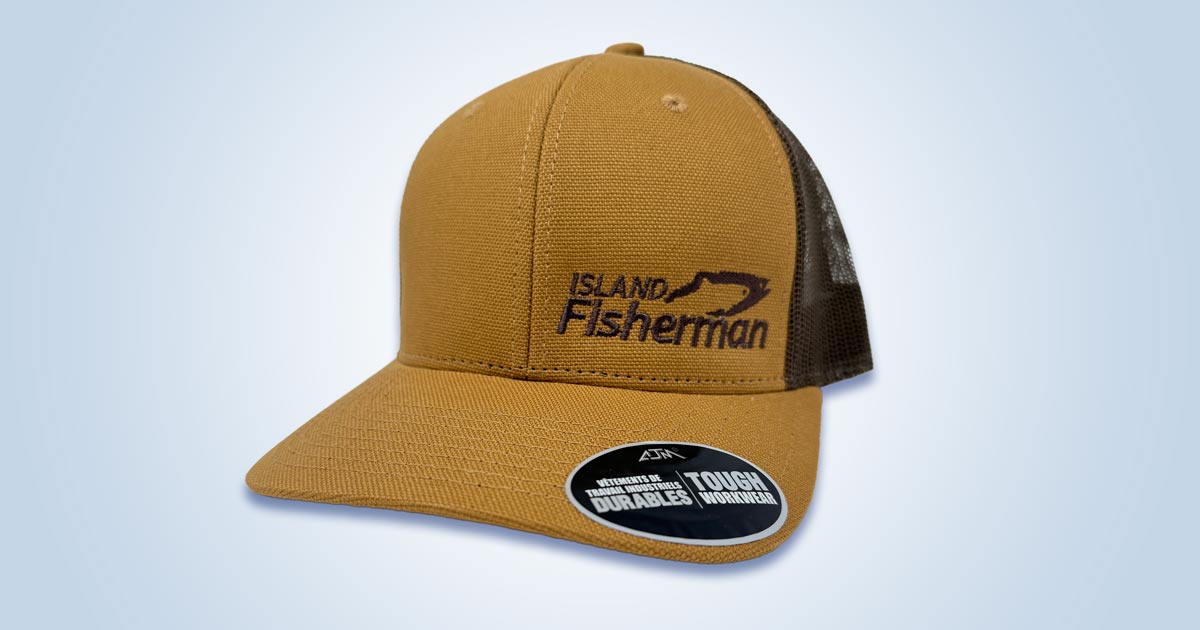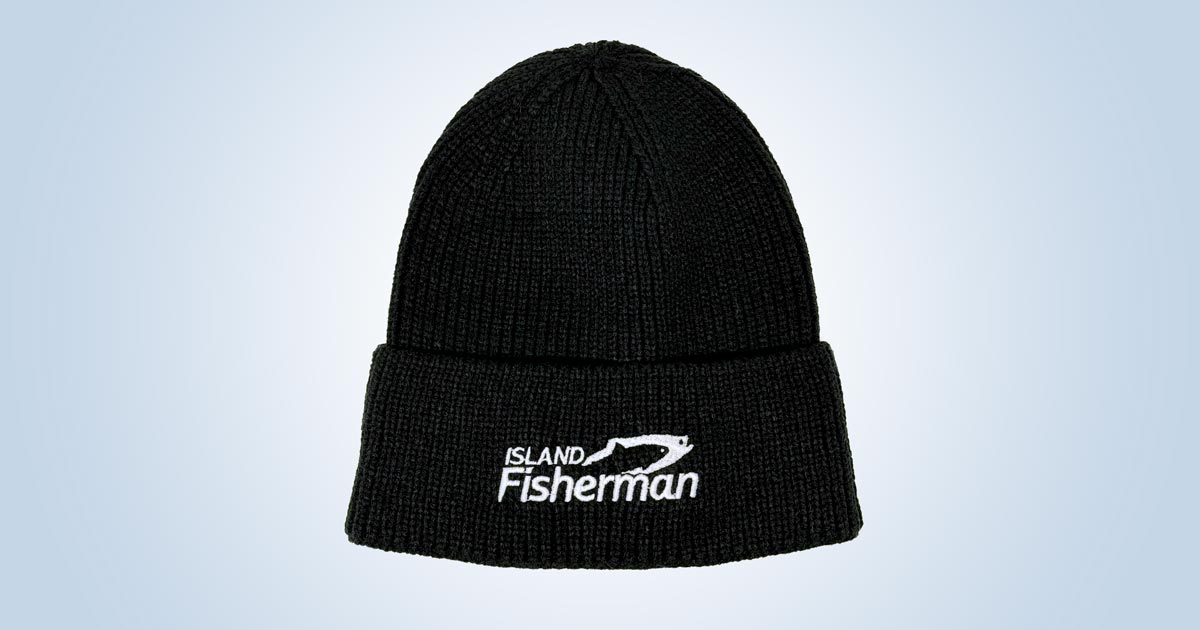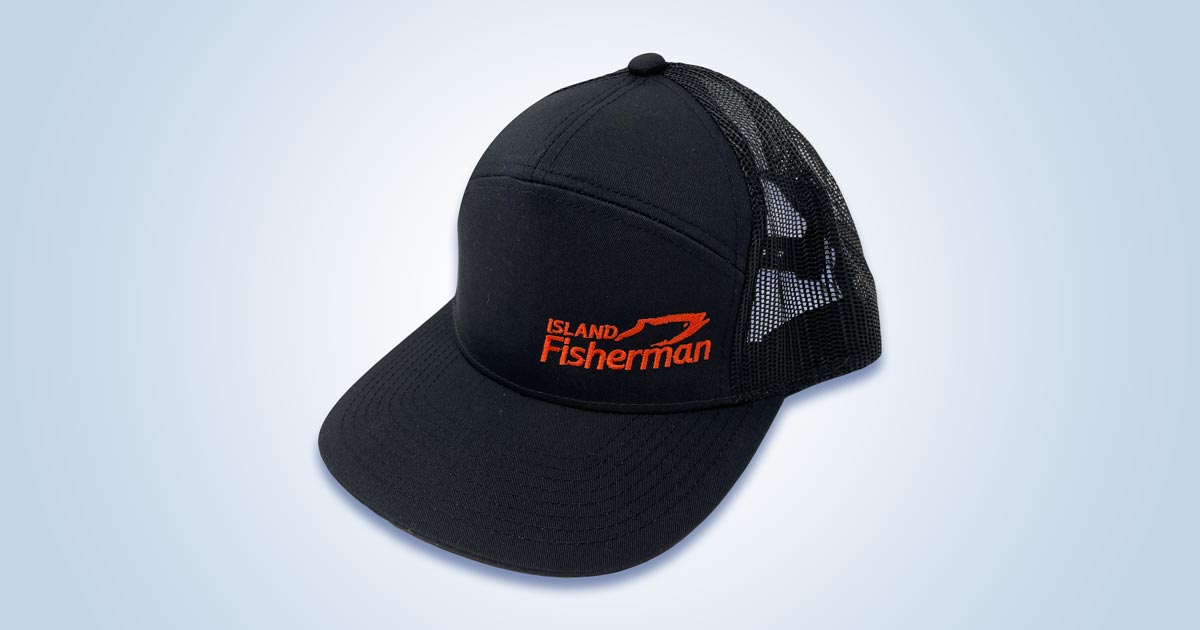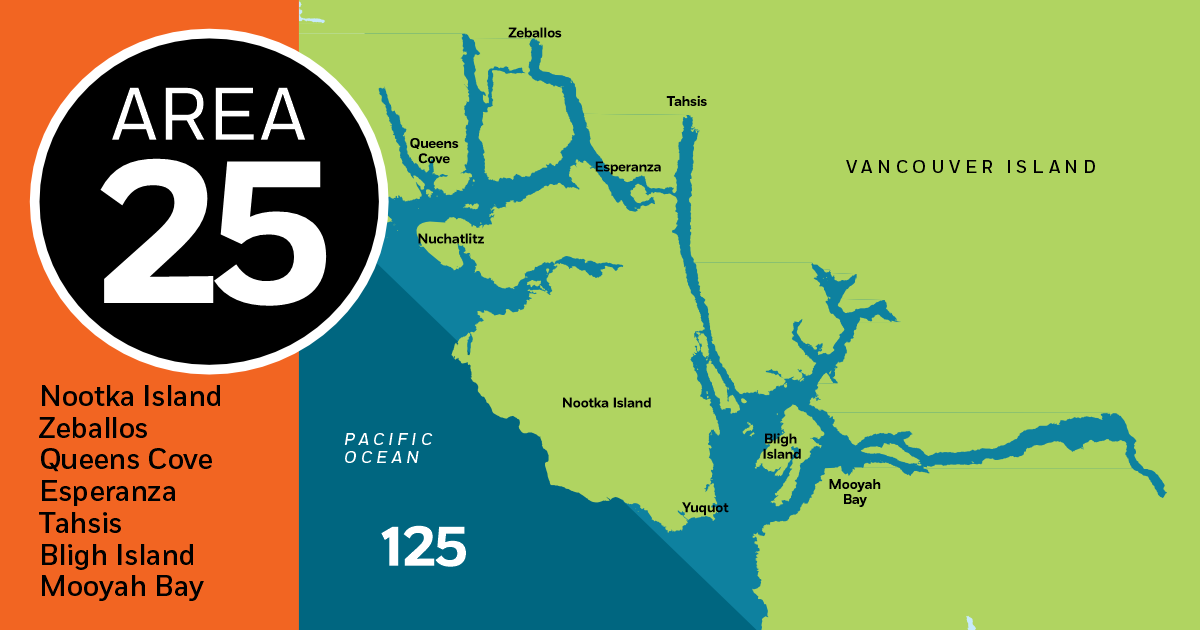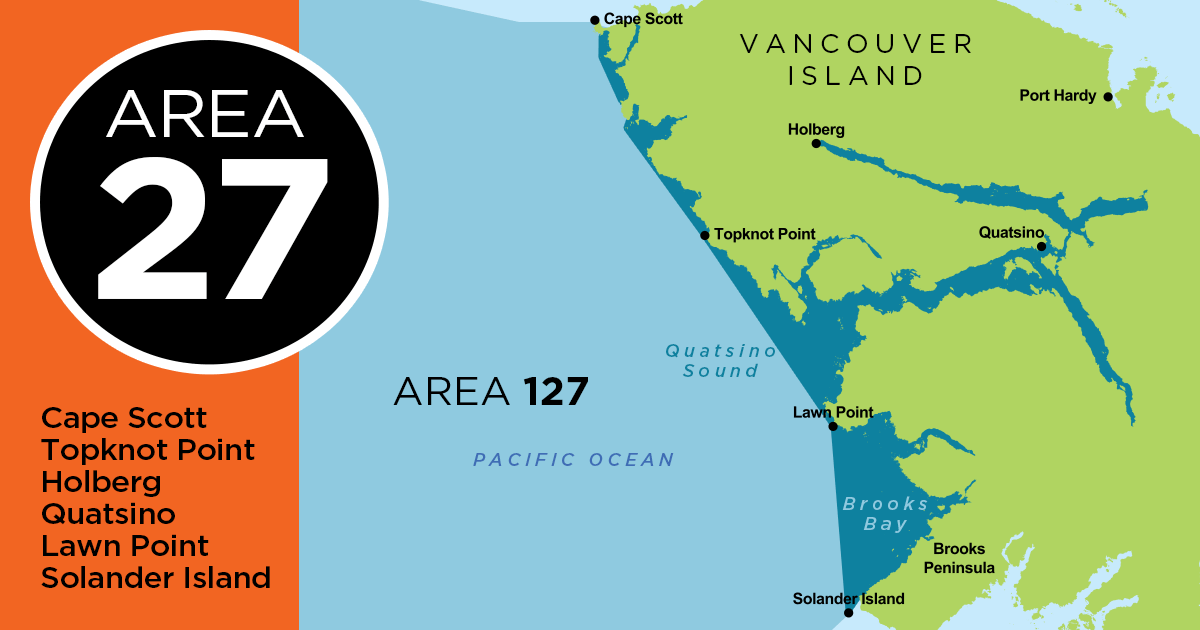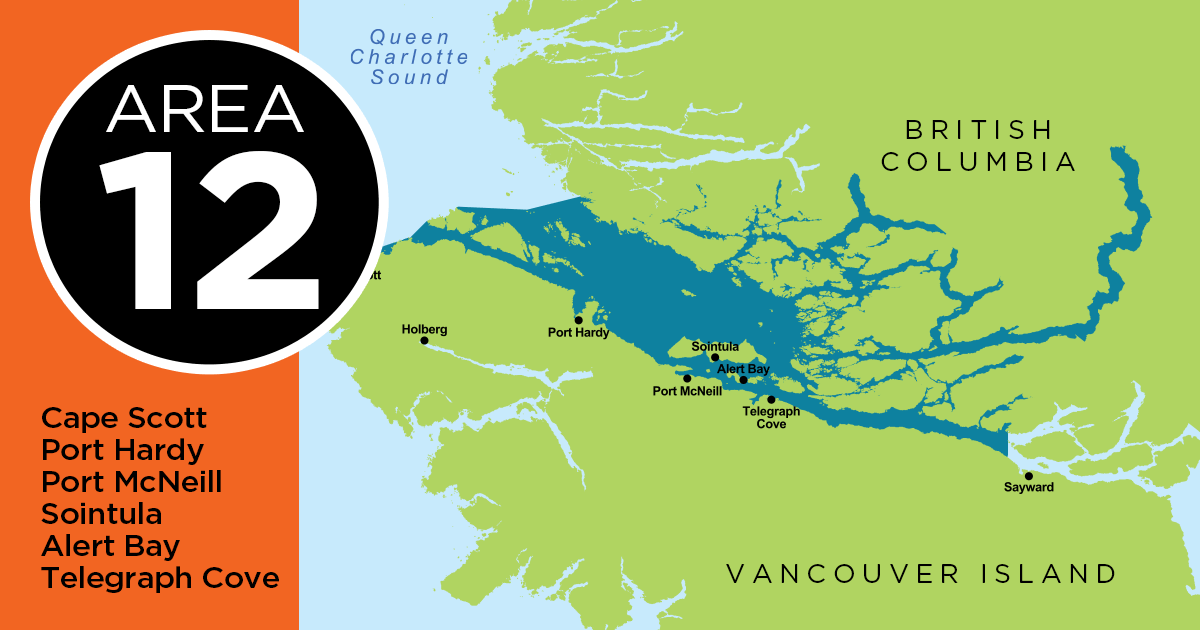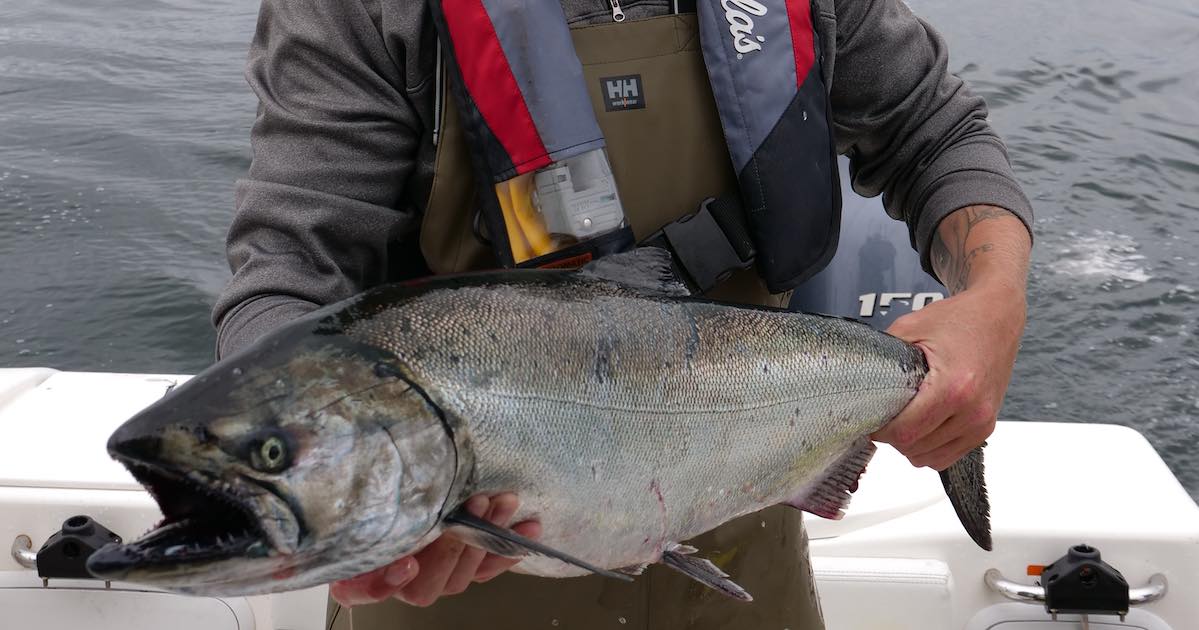
What is Mark Selective Fishing (MSF)?
Mark Selective Fishing is a fisheries management tool which allows retention of hatchery marked fish, while requiring wild unmarked fish to be released unharmed. Anglers can quickly and easily identify a “marked salmon,” even while it’s still in the water by noting a missing (removed) adipose fin which identifies the fish as hatchery origin. Click here for “What is a Salmon Hatchery”.

Adipose fin clipping (Photo by Peter McCully)
MSF works well in areas and times where there are high mark rates (presence of marked hatchery fish). In areas with low mark rates, MSF is often argued not to be an appropriate management tool due to the potential for higher than desired incidental mortality associated with release of fish while an angler is searching for a marked fish to retain.

Adipose fin-clipped hatchery Chinook
Fisheries Notice FN426-Recreational
Yesterday, Joyce Murray, the Minister of Fisheries Oceans & the Canadian Coast Guard, announced baby steps towards re-establishing the sensible management of BC’s marine recreational fisheries, when she approved some of the very modest mark selective fisheries (MSF) effective May 3, 2023. These will permit the retention of one hatchery Chinook salmon in a small strip of southeast Georgia Strait, and the very eastern portion of Juan de Fuca Strait:
“As part of the longer-term work under the Pacific Salmon Strategy Initiative (PSSI) to explore mass marking (MM) and mark-selective fisheries (MSFs) as part of an integrated management approach, the Department is announcing new pilot recreational MSFs for 2023. These openings are located away from primary migratory routes or during times when there is a low prevalence of Fraser River Chinook stocks of concern and increased abundance of other stocks including hatchery-marked Chinook. In addition to creel surveys (dockside interviews and overflight effort counts) and the iREC reporting program that will be conducted, these pilot MSF openings will be subject to enhanced monitoring including biological sampling and independent verification of at-sea releases. These MSFs will also be subject to evaluation of available post-season information and potential adjustments may be made prior to reopening in Spring 2024. ”
(Click here to see the notice): FN0426-RECREATIONAL – Salmon – Chinook – Portions of Areas 17 to 19 – Management Measures – Effective May 3, 2023
The four years following then Minister of Fisheries Johnathan Wilkinson’s hasty decision to impose Chinook-non-retention over large swathes of southern British Columbia’s most important recreational angling waters during the peak spring and summer angling period, created the most disruptive and acrimonious period in the history of the recreational fishery, and exposed valid concerns that DFO management of the fishery was driven by politics not existing data.
Credit must go to the Minister for making this decision, and to those in the recreational fishery who persisted knowing that the science supporting these fisheries was valid, even in the face of strong opposition from those who oppose recreational angling.
Obviously, this is good news for anglers in the areas where these modest MSF have opened, and it signals that selective fishing techniques are a legitimate part of an overall Chinook recovery strategy. However, it’s not time to pop the champagne cork. The decision still highlights obvious issues that must be addressed before 2024’s fishery management announcements are made:
-
What was the scientific basis for not opening Howe Sound? This needs to be spelled out clearly and thoroughly so that adjustments can be made to open this important fishery in 2024. If there was no science basis for conservation concerns why did it remain closed?
- Why did it take the Minister thirty-two days past the expected announcement date to make her decision? This is among the most vexing issues that must be resolved. This delay removed any opportunity for Juan de Fuca anglers to take part in MSF in 2023 even though DFO’s own assessment concluded stocks of concern in this area were ‘negligible until late May’. Decisions of this importance that affect recreational angling must be made well in advance of the peak fishing season. Period.
Enjoy the retention opportunities while they last. The difficult job of re-establishing sensible recreational fishing policies has begun. Angling advisors and advocates need to continue to press the federal government for comprehensive strategies that conserve weak salmon stocks and provide legitimate recreational fishing opportunities long into the future.
For more information on Mark Selective Fisheries, see Island Fisherman magazine’s coverage here.
Visit the Store
$34.99
$34.99
Featured Catch
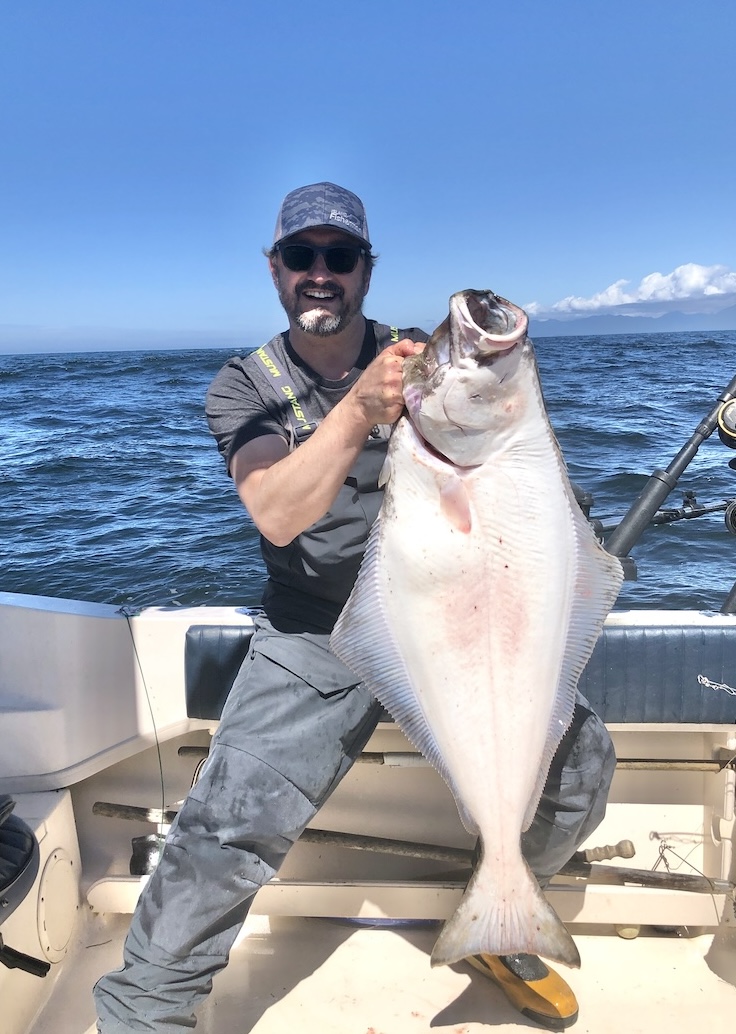
Joel Unickow halibut (Photo: Rob Frawley Lucky Strike Sportfishing Tofino)

